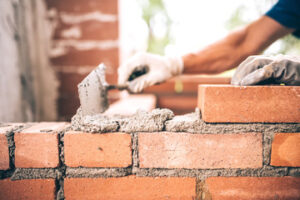Are You Considering a Career As a Brick Mason?
If you’re considering a career as a brick mason, you should be aware of the physical and mental demands of the job. You can learn about the work environment and the expected salary in this article. It also includes information on how to prepare yourself for the job. After reading this article, you’ll be able to decide if it’s for you.
Working as a brick mason is a challenging job that requires technical skills. Brick Mason Charleston SC reads blueprints, mixes mortar, and lays brick in a pattern that meets building codes. They must also be able to identify and repair problems with their work. Brick masons typically work outdoors on construction sites, where they must frequently lift and carry heavy materials. They may also have to communicate with other construction professionals and clients.
A brick mason works with a variety of masonry materials and can build walls, floors, fireplaces, and chimneys. These masons also use precast masonry panels, concrete blocks, and other building materials to construct structures. Some brickmasons specialize in specific areas, such as historic preservation or commercial construction.
As the population grows, there is a growing need for masons. These masons will be needed to construct public buildings and repair roads. A brick mason market will also continue to grow as more construction projects need brickwork. Many brick masons work on hospitals, schools, and other structures that require a sturdy foundation. Additionally, brick masons can benefit from the rise of robotics in the construction industry. These machines can increase efficiency and reduce the risk of injury or accident.
A brick mason usually works full time, but overtime may be required for large-scale projects. Masons may also work outside during inclement weather, which can affect their schedules. In addition, masons must also be able to work safely, as they often must lift and carry heavy materials and use a variety of heavy tools.
The brick masonry industry is shifting toward environmentally friendly building materials. The increased demand for recycled glass bricks, which are made from recycled glass bottles, is creating new opportunities for brick masons who are willing to adapt. The industry is also seeing a shift towards collaboration between subcontractors and contractors. They are being asked to do more than lay bricks, such as building walls and even putting in drainage.
Brickmasons typically start their work in the corners of a building, as this requires the most precision. They then spread a mortar bed before placing a brick. They may also saw or cut bricks to fit around openings. Finally, they finish the mortar joints with jointing tools.
A brick mason’s work requires heavy lifting and bending. It also requires a high level of attention to detail. As brick masons often work outdoors, their activity is limited by the weather. However, brick masons also have a flexible schedule. Although this work requires long hours, they typically have evenings and weekends off to rest.
Those who want to become a brick mason should consider an apprenticeship program. This will allow them to learn the skills they need to be an expert. The course will involve three to four years of on-the-job training and 144 hours of classroom training each year. An apprenticeship will also allow students to ask mentors questions and receive advice.
The job of a brick mason is highly demanding, requiring high physical strength and mental agility. A brick mason needs to have a high school diploma or GED equivalent to enter the workforce. Some high schools offer technical programs that can prepare students to become entry-level brick masons. Once an applicant has obtained the necessary training, he or she must complete an apprenticeship program, which usually lasts three to four years.
As the name suggests, brick masons work with a variety of building materials to create visually appealing structures. They also construct add-ons to homes and businesses. A brick mason earns an average annual salary of $43,997, plus overtime pay. According to the Bureau of Labor Statistics, the demand for brick masons is expected to grow by 34% in the next decade.
Brickmason work is very physically demanding, requiring bricklayers to stand, bend, and kneel. Bricklayers are at risk for pulmonary disease, low back pain, arm and leg complaints, and injuries. In addition, brick masons often work in inclement weather, which can limit the amount of time they can work.
